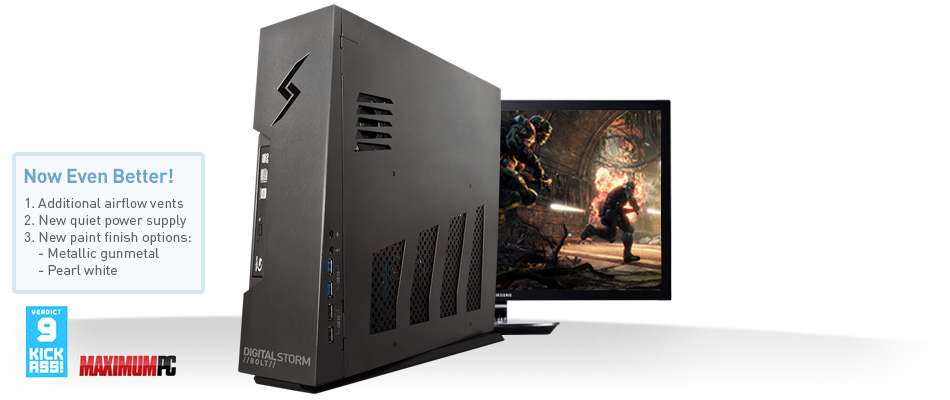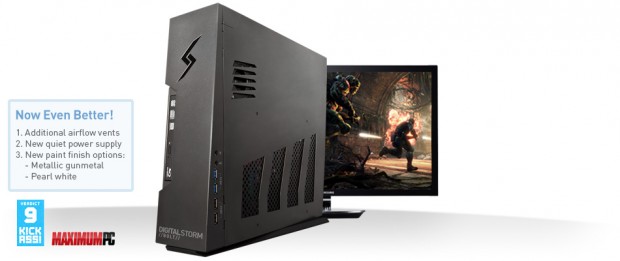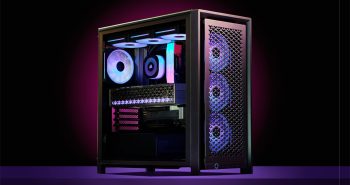FREMONT, Calif. – (December 19, 2012) – Digital Storm, the predominant name in computer system integration and engineering, is excited to announce it has made Bolt, the slimmest custom designed gaming computer on the market, even better. Acting on feedback from customers and the media, Digital Storm redesigned Bolt to run quieter with improved airflow, upgraded its Level 3 configuration, and now offers two new paint options without raising the price.
Despite the fanfare and tremendous success of the Bolt launch this past fall; the Digital Storm engineering team felt the need to address concerns regarding system noise levels and a glossy finish that seemed to attract fingerprints. The team contacted power supply manufacturer Sparkle to create a custom quiet fan profile for the server class 500W Gold Plus PSU. Digital Storm then added a new side vent to improve overall chassis airflow.
With an improved chassis design, the team then turned its attention to paint options, looking for solutions befitting the most powerful thin form factor tower PC ever. Digital Storm decided on two matte options – an aggressive metallic gunmetal and stylish pearl white.
“When we (Digital Storm) design a system it has to stand up to our core principles — performance, support, and value,” said Rajeev Kuruppu, Digital Storm’s Director of Product Development. “Our original design was outstanding, but after listening to customers and reading media reviews we knew we could raise Bolt’s design to an even higher plateau. The result of the changes we made is a sleek and quiet system design, capable of going toe to toe with any full-sized tower-style desktop.”
Digital Storm also decided to upgrade the already bleeding edge hardware available on its Bolt Level 3 configuration. The company replaced the Intel Core i5 3570K processor with an overclockable i7 3770K CPU and upgraded the 60GB SSD to a 120GB SSD, all while keeping the base price at an affordable $1,599.
Prior to shipping to the customer, each Digital Storm system undergoes a rigorous 72-Hour Stress-Test. Digital Storm technicians stress-test and benchmark the system via industry standard testing software coupled with a proprietary testing process that detects components which can be prone to future failure.






